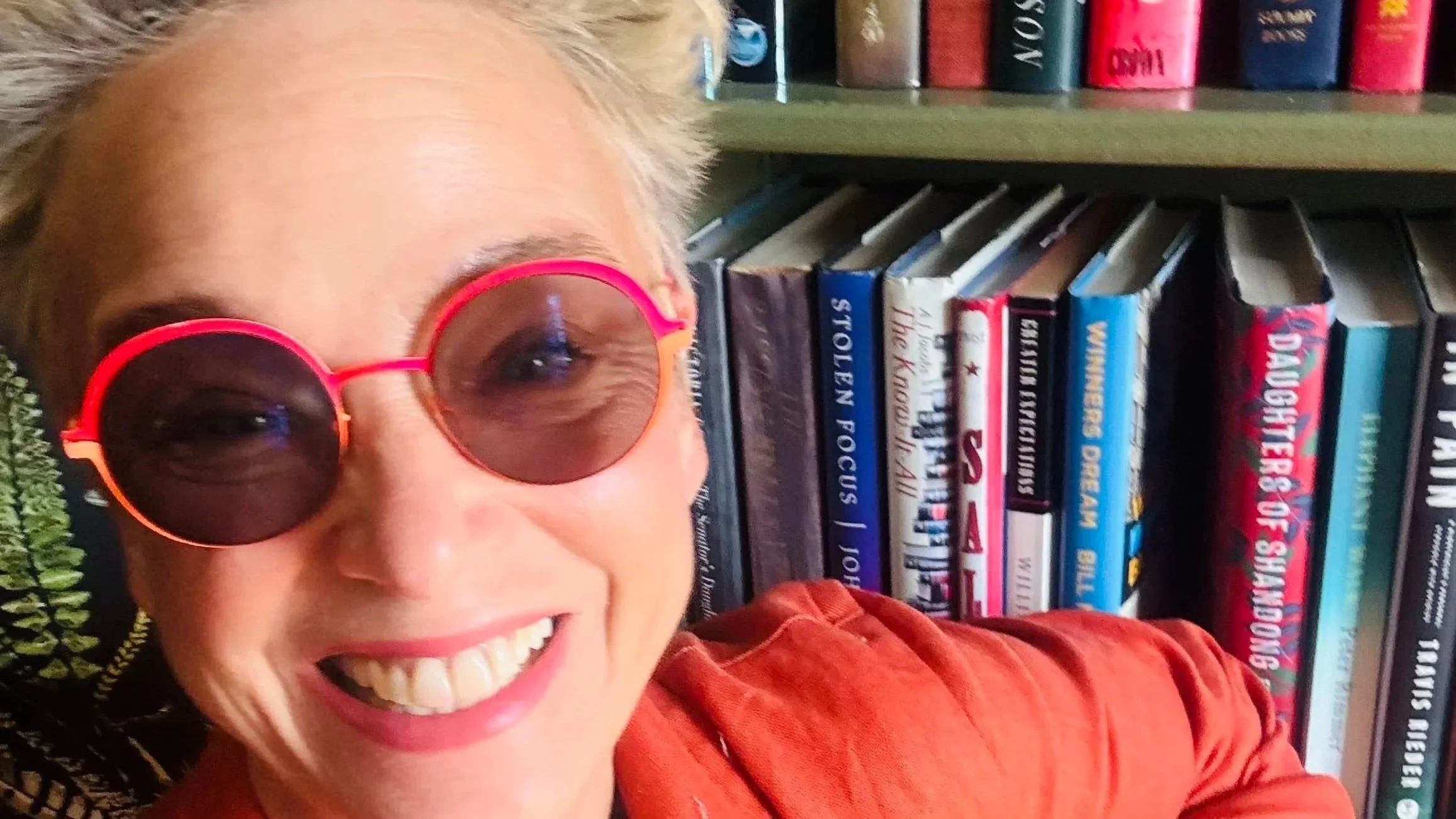You can't free your voice and keep everyone comfortable. It doesn't work that way.
The moment you tell your truth—the real one, not the sanitized version that keeps the peace—someone's going to cast you as the villain in their story. The ungrateful one. The disloyal one. The one who "changed," "went too far," or "should have known better."
Good. You're on your way to becoming a real writer and your own person.
Writers who transform their lives are willing to be misunderstood. They stop performing emotional CPR on other people's comfort and start breathing life into their truth.
Think about Harley Quinn from Batman. Brilliant psychiatrist. Respected professional. Then she falls, hard and messy, into her own chaos—and Gotham loses its mind. She goes from Dr. Harleen Quinzel to Public Enemy, and she does it with theatrical flair, zero apologies, and a baseball bat.
Now, I'm not saying you need to commit felonies (please don't). Though I have been known to pack a Louisville Slugger ever since I traded in the story that someone would save me (persistent default narrative for many of us) for knowing that the only one coming to save me is the next version of myself.
And though I fought it for a long time, choosing myself has meant becoming the villain in other people's stories. It was uncomfortable at first. And, ultimately, it’s one of the most liberating moves I’ve ever made.
Like Harley, many of us have intentions to help, to heal, to be good. We follow the rules, even the ones that were never made with us in mind. We manage feelings. We keep our ugly truths locked up because we're terrified of what happens when we let them out.
And then one day—maybe it's a betrayal, exhaustion, or the crimes against humanity—we can’t hide from the truth anymore.
The stories we aren't supposed to tell. The memories we were supposed to forget. The version of events that makes it clear the thing we've been told to ignore—the wound, the pattern, the truth, the blatant misogyny —is real, and it will get worse unless we confront it.
Fragile egos, angry outbursts, all-out wars aren’t anything we haven’t seen before.
We can go on the defensive, never ends well, or we can see it as an opportunity to seize this moment as the permission we've been waiting for: we can own it.
Becoming the villain in someone else’s story doesn’t mean you’re cruel or reckless. Just remember this simple truth: The people who need us silent will always rewrite us dangerous when we speak. When either path is dangerous, will you take the one that leads to the greater good?
Here's why it's worth it:
Truth is only threatening to people who need the lie. When you write what actually happened—not the version that preserves family myths—you disrupt carefully constructed narratives. Family systems theory teaches us that secrets keep dysfunctional systems intact. When you refuse to write the truth to protect someone's reputation, you're not just abandoning yourself—you're maintaining the conditions that allowed the harm in the first place. The people invested in false stories will cast you as the villain to protect themselves.
Silence is self-abandonment—and it's making you sick. Research on self-concept clarity shows that people who live in alignment with their internal values have lower anxiety, better emotional regulation, and a stronger sense of purpose. Every time you don't say or write the thing because of how they'll feel, you're choosing their comfort over your integrity. That disconnect between your inner truth and outer performance dysregulates your nervous system. Being the "villain" who speaks up is actually the path to better health and more capacity.
Your story belongs to you—ethically and experientially. The truth is a powerful defense, both legally and morally. When you write what actually happened, you're not violating anyone's rights. You're claiming your own. Living in alignment with your values—telling the truth about your life—strengthens your emotional resilience and psychological well-being.
The "villain" label is a manipulation tactic. Calling someone a villain for telling the truth is a classic DARVO move (Deny, Attack, Reverse Victim and Offender). It's designed to make YOU responsible for THEIR discomfort with being exposed. Recognizing this pattern is liberating—once you see it, the label loses its power. You're not the villain. You're the truth-teller they're trying to silence.
Your truth will make someone uncomfortable. Your memoir will hurt someone's feelings. Your essay will contradict someone's version of events. Your success will threaten someone's narrative about who you're supposed to be. It may even force them to confront who they think they are, and believe me, it'll be easier for them to cast you as the villain than to take accountability for the ways they've failed you.
Write it anyway. By all means, write it responsibly. Write it respectfully. Harley refused to shrink. You shouldn’t either.
These are not times to shrink, especially not for people committed to misunderstanding you.
Feel free to reach out if there’s anything I can do to support you on your journey. You can reach me at clementina@clementinacollective.com






